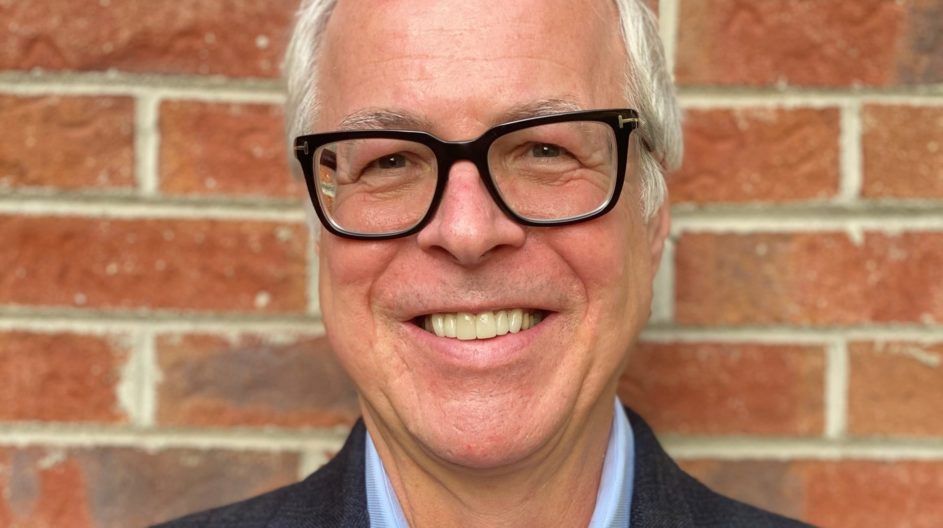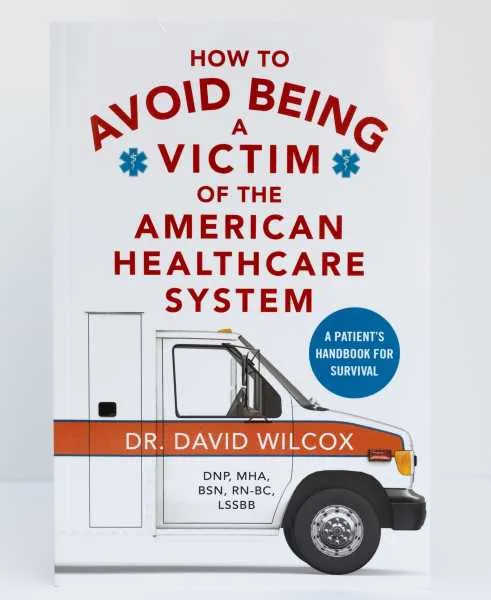
Frustrated and Overwhelmed by Your Health Care? There’s a Book for That!
This past summer, shortly after Dr. David Wilcox ’08 MHA of Concord, N.C. published How to Avoid Being a Victim of the American Healthcare System, one of his neighbors read it carefully before undergoing surgery to repair his hernia.
The neighbor, having gleaned lots of helpful tips from a chapter in the book titled “What You Should Know About Surgery,” peppered his surgeon with several informed questions at the pre-surgery consult:
- How many times have you performed the surgery, and who will operate on me? Patients have a right to request an experienced surgeon.
- Will I be the first patient on your surgery schedule? That’s when the surgeon would be well rested and, therefore, statistically more likely to deliver a successful outcome.
- How long will I be in the hospital following surgery? Knowing this “alleviates anxiety and helps you plan your recovery period,” Wilcox says in the book.
“My neighbor told me that the surgeon looked at him like he had three heads,” said Wilcox, who holds a Master of Health Administration from Pfeiffer University. “But that’s OK. If I’ve helped just one person, the book has been worth it.”

How to Avoid Being a Victim espouses what Wilcox calls “proactive patient education,” not only making patients better partners in their health care but also helping them obtain the best healthcare outcomes. The book is written from the perspective of a nurse, a role in which Wilcox served for many years. It helps patients navigate a system of often-frustrating complexities. It tells them in plain language what to do if an insurance company denies their claim, how to lower high prescription drug costs, and how to stay safe in a hospital environment.
The book also reveals where Wilcox believes the American healthcare system is headed — not for socialized medicine, which the United States would “never go for,” but for value-based care. In the latter model, doctors will be paid, not according to the number of patients they see, but “for the quality of their work,” which boils down to “keeping (patients) out of the hospital.”
So far, the reception to How to Avoid Begin a Victim appears to have been quite positive: As of early this month, the book had received 27 five-star ratings on Amazon.
“Dr. Wilcox does an amazing job of distilling down the complex world of health care into a book that everyone can understand,” wrote Adam Conrad, an Amazon reviewer. “This book is full of information that everyone who interacts with the American Healthcare System needs to know. We all need to be a healthcare advocate for our friends, family, and ourselves — this book will help prepare you for that role.”
How to Avoid Being a Victim is one of several recently published books that have lifted the curtain on American healthcare’s problems and proposed ways to surmount them. What sets Wilcox’s book apart is that its contents reflect its author’s multifaceted career in nursing, which began in 1996 and included stints in an emergency department and as a kidney/pancreas transplant specialist.
Each chapter in How to Avoid Being a Victim concludes with a “Nursing Knowledge” section. This reflects Wilcox’s belief that a nurse serves as the most effective, on-the-front-lines resource for navigating the American Healthcare System and avoiding its most unfortunate circumstances. He urges readers of his book to include nurses in their networks of friends and colleagues.
Wilcox, who holds a Doctor of Nursing Practice from Old Dominion University, has also worked in nursing management and supervision. He’s currently a clinical executive for Cerner Corporation, a healthcare IT company, helping hospital executives marry technology with organizational imperatives aimed at producing more efficient workflows and better outcomes.
Wilcox credits Pfeiffer’s MHA program with putting him in a position to write How to Avoid Being a Victim. He praised Dr. Joel Vickers, the program’s former director, for a curriculum that not only deepened his understanding of the American healthcare system but also introduced him to other systems around the world. Wilcox and other MHA students at Pfeiffer traveled to Germany and Austria to study health care in those countries.
“I refined my skills as a researcher at Pfeiffer, and I became open to new ideas,” Wilcox said. “The program opened my mind to the fact that I need to not just trust what’s being fed to me. I need to be able to go out there and figure out what works, what doesn’t and why, and then, be an advocate for the patient in those areas.”
Ken Keuffel, who authored this article, has served as Pfeiffer’s Assistant Director of Communications since December 2019. He welcomes story ideas from Pfeiffer’s faculty, staff, students, alumni, and friends.